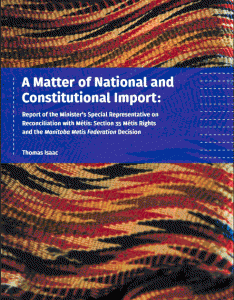Congratulations to Jeremy Webber, Dean of Law, who will be inducted as a Fellow of the Royal Society of Canada. Webber will be inducted as a Fellow on November 18th at Royal Society of Canada’s Induction and Awards Ceremony in Kingston, Ontario.
Election to the Royal Society of Canada is the highest honour granted to Canadian scholars in the fields of arts, humanities and sciences.
From the Royal Society of Canada citation:
Jeremy Webber, Trudeau Fellow and twice-appointed Canada Research Chair in Law and Society, is among the world’s most influential scholars in constitutional theory and legal pluralism. He has made outstanding contributions to both Canada and other countries on issues of constitutional reform, Indigenous rights, religious freedom, transitional justice and minority rights…
You can read Webber’s full RSC citation here and more about his induction in UVic News.
Webber has produced a number of groundbreaking works over the past 30 years including two authored and one coauthored books, four edited books, and over 60 book chapters and articles. Below are just a sample of the publications Webber wrote or contributed to:
- The Constitution of Canada : A Contextual Analysis / Jeremy Webber (2015). Call number: KE4219 W42 2015
- Recognition Versus Self-Determination : Dilemmas of Emancipatory Politics / edited by Avigail Eisenberg, Jeremy Webber, Glen Coulthard, and Andrée Boisselle (2014). Call number: GN495.4 R43 2014
- “A Two-Level Justification for Religious Toleration” (2014) 4 Journal of Indian Law and Society 1. Online
- Storied Communities : Narratives of Contact and Arrival in Constituting Political Community / edited by Hester Lessard, Rebecca Johnson, and Jeremy Webber (2011). Call number JC311 S84 2011
- Between Consenting Peoples : Political Community and the Meaning of Consent / edited by Jeremy Webber and Colin M Macleod (2010). Call number: JC328.2 B465 2010
- “The Grammar of Customary Law” (2009) 54 McGill Law Journal 579. Online
- Let Right be Done : Aboriginal Title, the Calder Case, and the Future of Indigenous Rights / edited by Hamar Foster, Heather Raven, and Jeremy Webber (2007). Call number: KE7715 L47 2007
- “Legal Pluralism and Human Agency” (2005) 44:1 Osgoode Hall Law Journal 167. Online
- “Beyond Regret: Mabo’s Implications for Australian Constitutionalism” in Political Theory and the Rights of Indigenous Peoples edited by Duncan Ivison, Paul Patton and Will Sanders (2000). Call number GN380 P65
- Reimagining Canada : Language, Culture, Community and the Canadian Constitution / Jeremy Webber (1993). Call number: JL27.5 W42 1993 and Online
